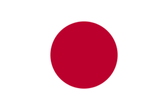
Call 0330 880 3600 Calls may be monitored or recorded. Opening Times.
- TRAVEL INSURANCE
- COVID-19 COVER
- More Options
- Help & Advice
- Existing Customers

Call 0330 880 3600 Calls may be monitored or recorded. Opening Times.

Need help?
UK Customer Services0330 880 3600*
Open Monday to Friday 9:00am to 6pm, Saturday 8:30am to 4pm and closed Sundays.
*Calls are recorded for training and quality purposes.

Official name: Japan
Capital city: Tokyo
Languages spoken: Japanese
Population: Around 123 million
Currency: Japanese yen (JPY)
Time zone: GMT+9
Driving side: Left
Climate: Ranges from snowy winters in the north to subtropical conditions in the south, with distinct spring blossoms and autumn colours
Japan blends centuries-old tradition with cutting-edge modernity. From Tokyo’s neon skyscrapers and bullet trains to Kyoto’s serene temples and Hiroshima’s poignant memorials, the country is full of contrasts. Visitors come for its food, culture, and efficiency, but also for the politeness and orderliness that underpin daily life. Earthquakes are a natural risk, and typhoon season runs from May to October, but Japan remains one of the safest and most organised travel destinations in the world.
Japan is an island nation in East Asia, stretching along the Pacific coast opposite China and Korea. It consists of four main islands - Honshu, Hokkaido, Kyushu and Shikoku - plus thousands of smaller islands. The country is mountainous and volcanic, with Mount Fuji its most famous peak. Its geography shapes both culture and lifestyle, from hot springs to densely populated coastal plains.
Narita and Haneda airports in Tokyo and Kansai International near Osaka are the primary gateways. Domestic travel is fast and efficient thanks to the Shinkansen (bullet train) and an extensive rail and bus network. Local transport is well-organised, with subways and buses running on time. Driving is possible but unnecessary for most visitors, especially in cities where public transport is excellent.
UK citizens can enter Japan visa-free for up to 90 days. Longer stays or work require a visa or permit obtained in advance. The British Embassy is in Tokyo, with consulates in Osaka and elsewhere. Visitors should ensure their passport is valid for the full duration of stay.
The Japanese yen (JPY) is the official currency. Cash is still widely used, even though cards and digital payments are increasingly accepted. ATMs are available in convenience stores and post offices. Japan is generally expensive, particularly in cities, though quality and service standards are very high.
Japan offers excellent healthcare, with modern hospitals and clinics across the country. English-speaking staff can be limited outside major cities, but treatment standards are among the best in the world. Travel insurance is essential to cover costs. Tap water is safe to drink, and food hygiene standards are very high. Seasonal risks include heatstroke in summer and pollen allergies in spring.